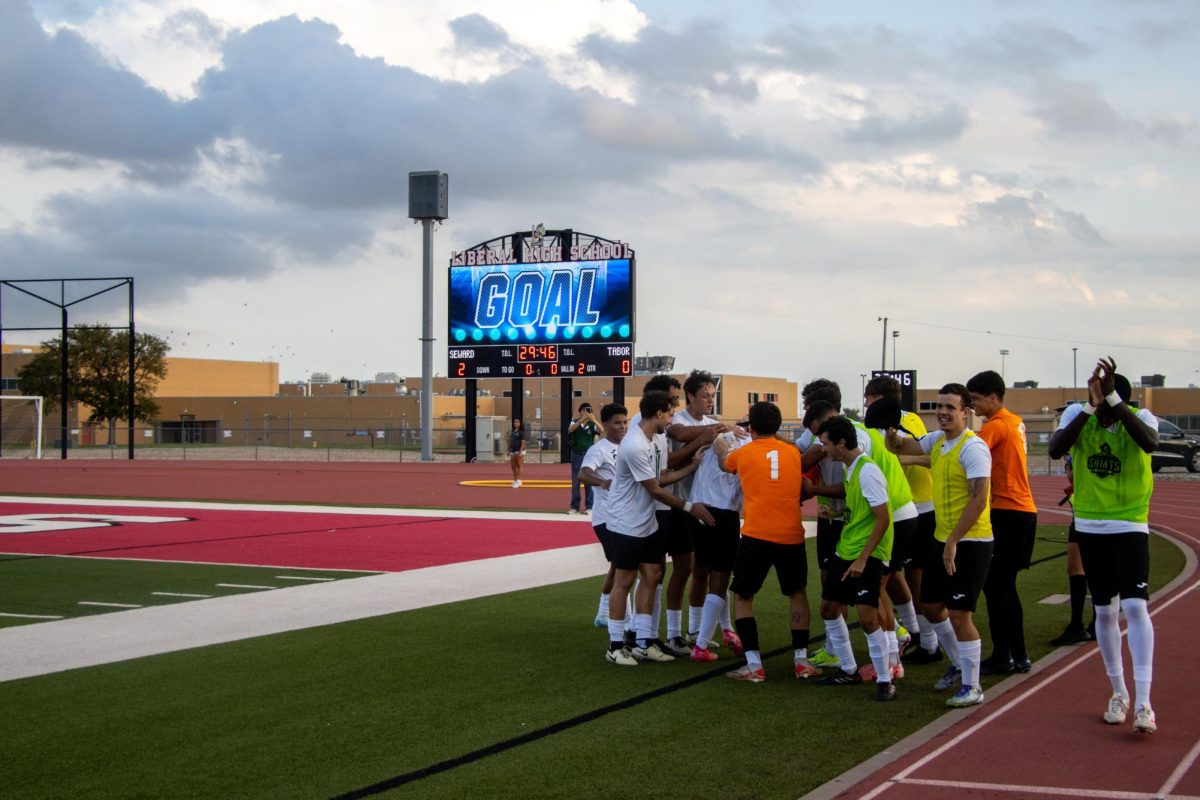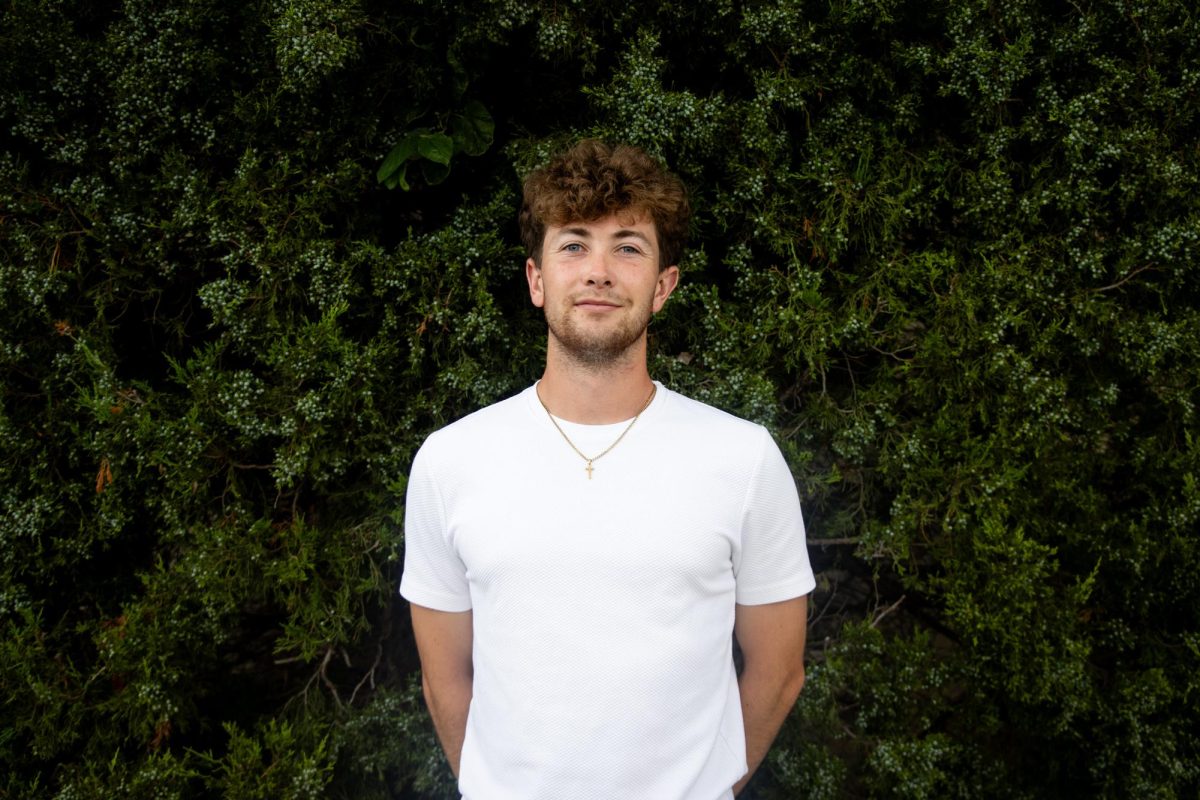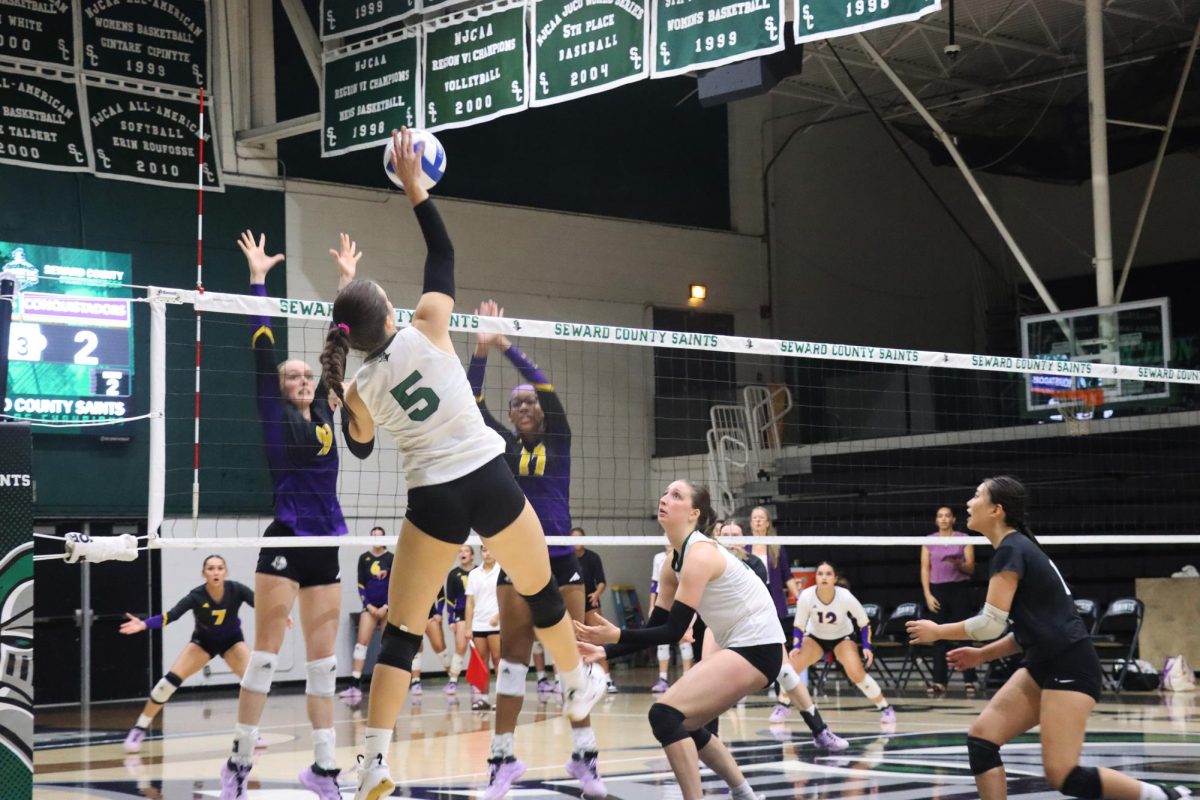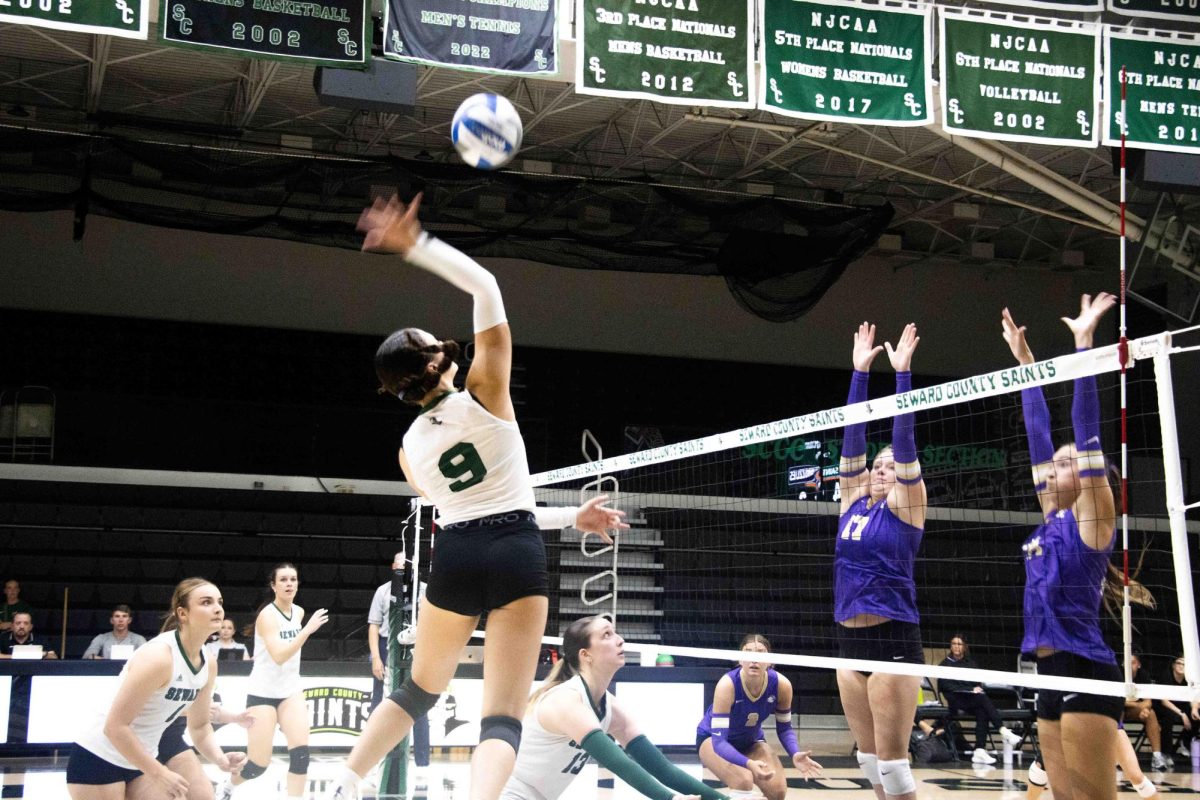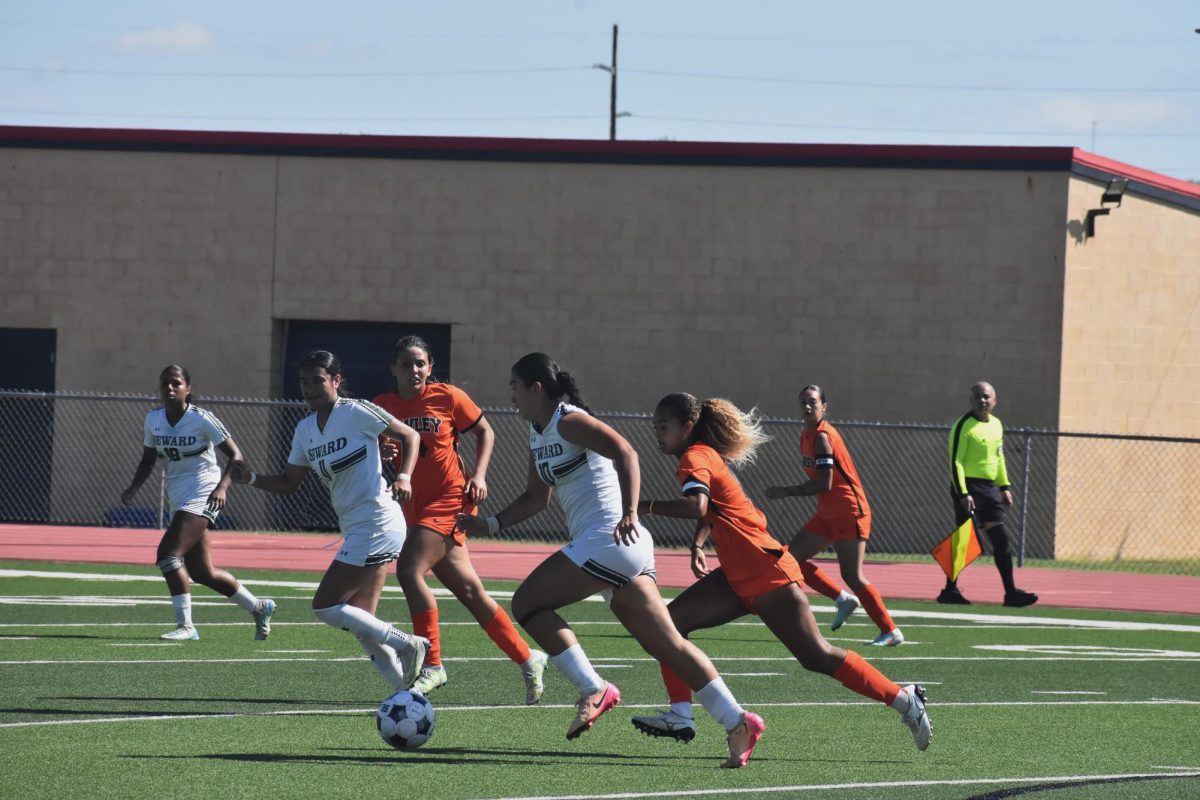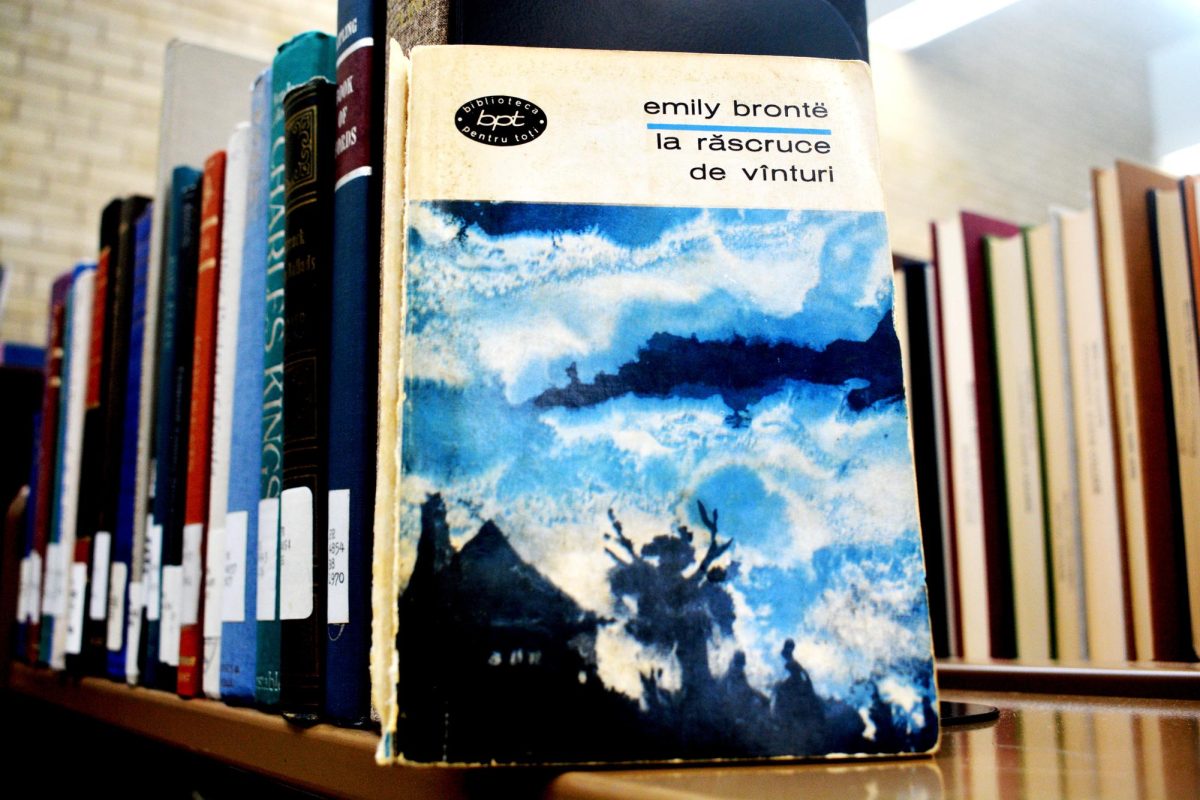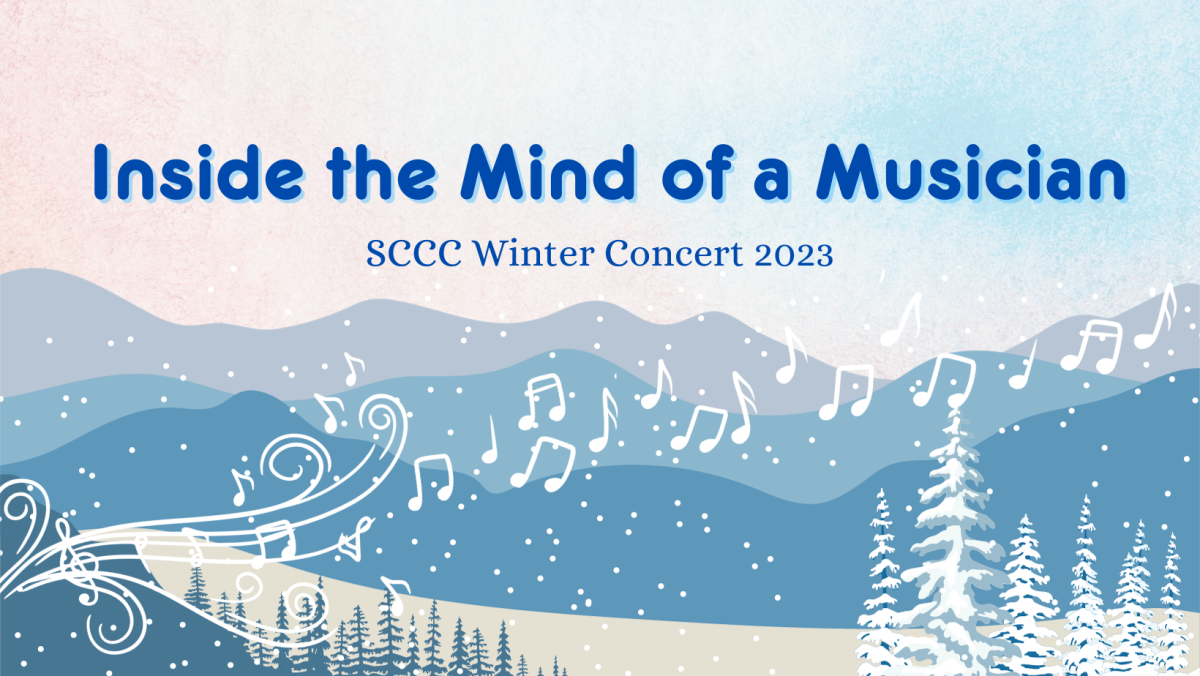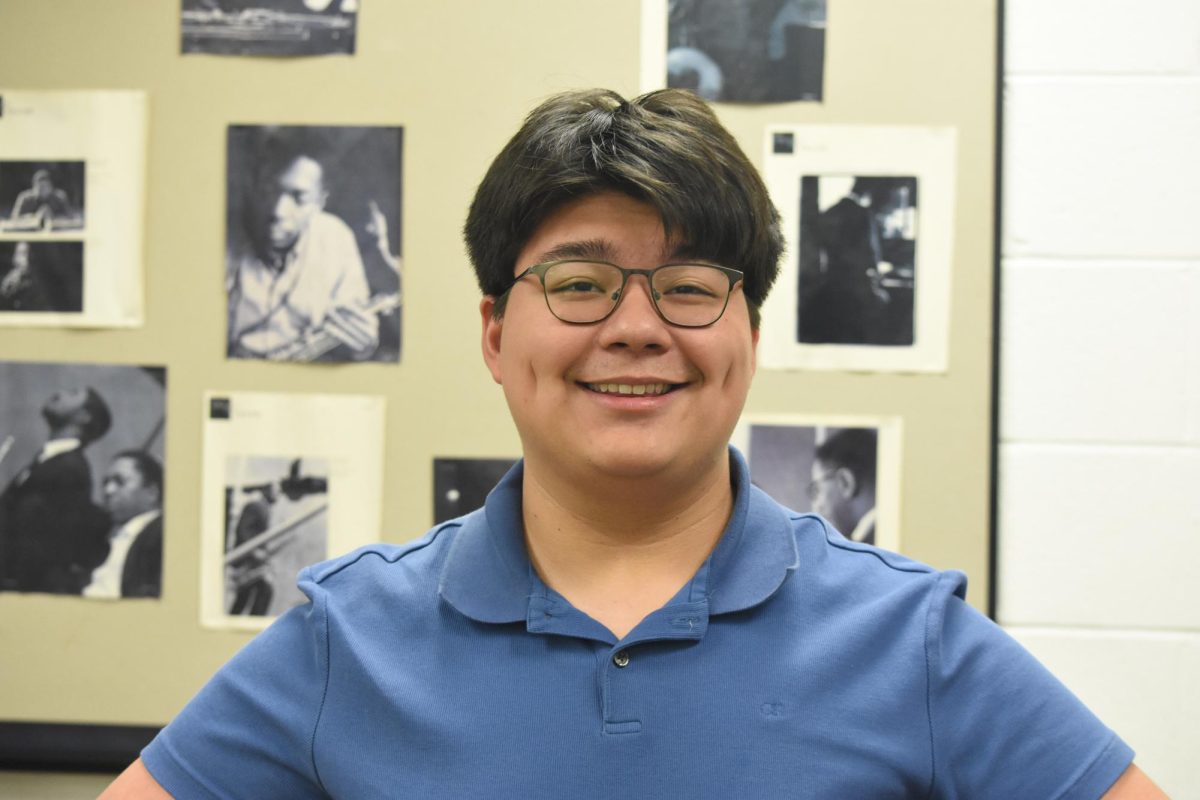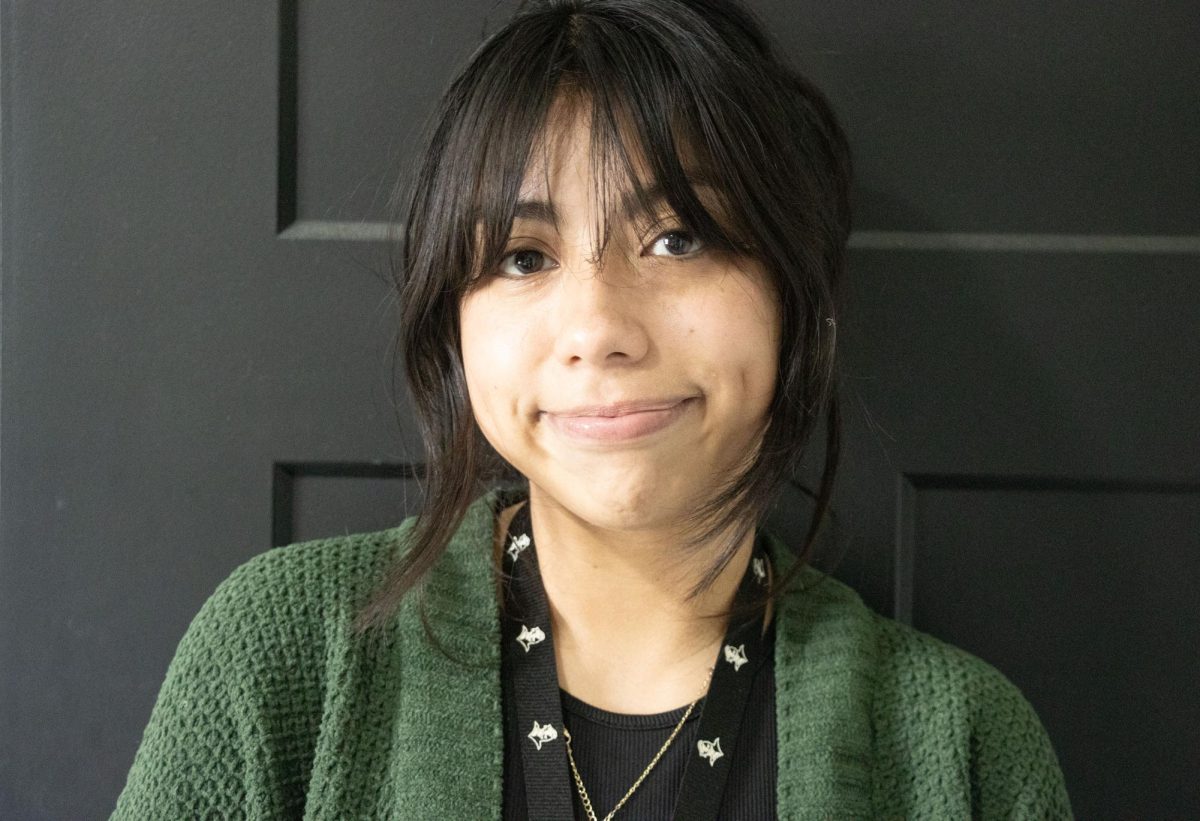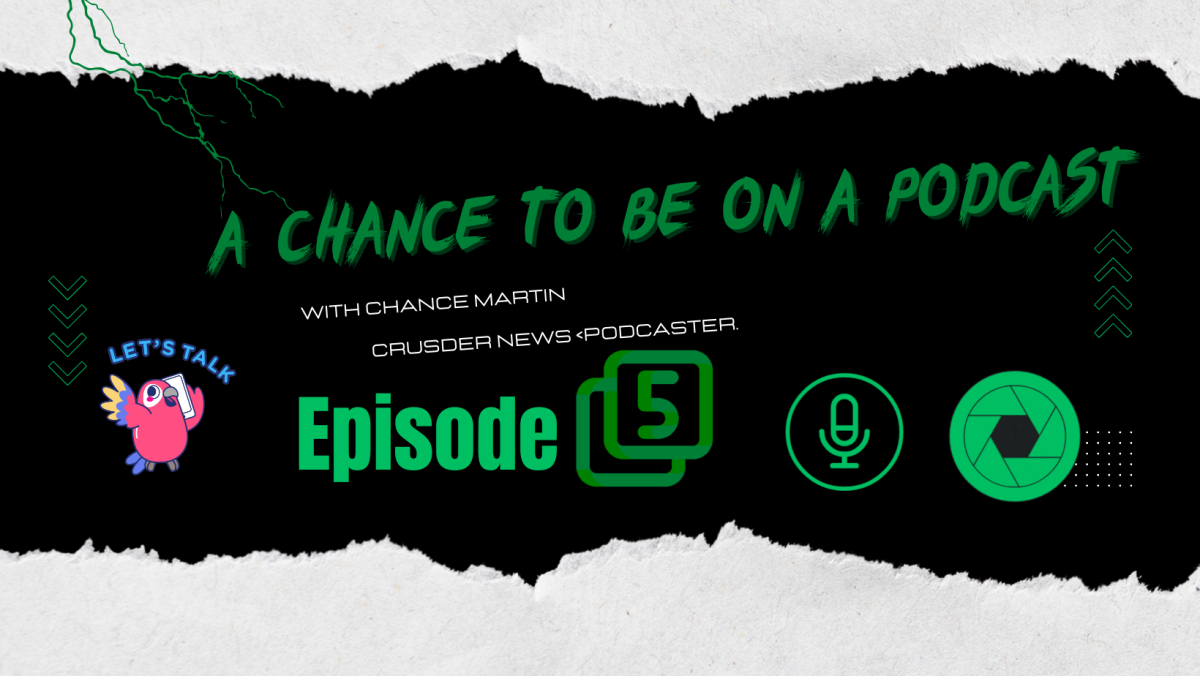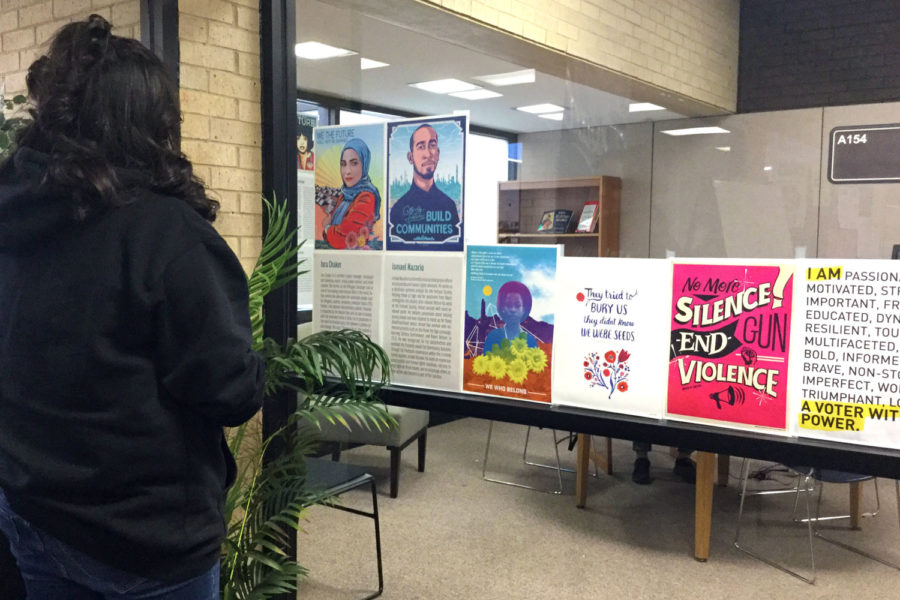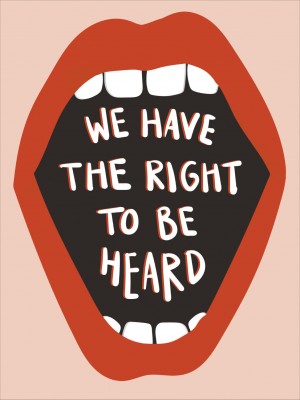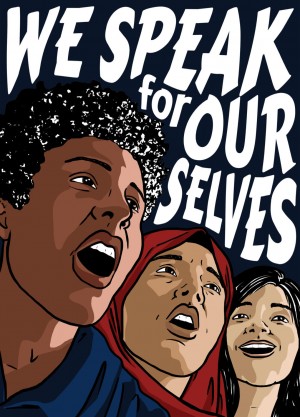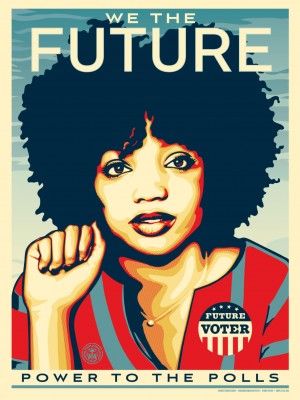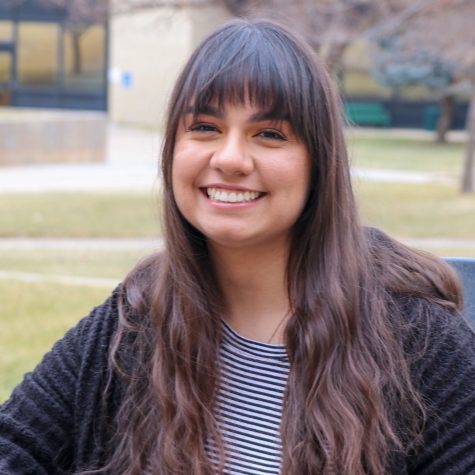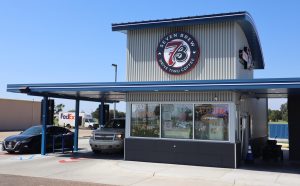Activism: Post-Millennials vs. Baby Boomers
Students surprised to find ‘generation gap’ not so big
Freshman education major Gissella Garcia takes a quick look at activism posters hung up in the SCCC library.
February 8, 201960 Views
To be an activist one must be aware of the political and social climate one lives in. It is clear that today in America the tension between sides or parties are becoming more defined and people are becoming more outspoken. Locally, on social media or publicly in the streets, movements of activism are becoming the concern of the people we are friends with at home.
College campuses are known for being particularly progressive on social and political topics, as well as being very opinionated. This is the age when thinking for yourself is a new concept to explore, as well as being exposed to other very opinionated groups and people.
Activism is a subject students of the Post-Millennial age are very familiar with and more interested in. Are older generations able to grasp this with the same vigor and mindset of a college-aged? Possibly, people from both generations can say it is easy to see the commonalities between the two, despite all differences politically, socially or age.
At this younger age with the evolvement of the internet, there have been many platforms made available to the individual in the last decade, such as social media. On social media, it is simple to make your voice heard with the click of a button.
“Social Media can be a legitimate form of activism. I do not think we [as young people] are obligated to use it for that purpose. We are just kids just like the generations before us,”Ana Herrera, freshman psychology major. said.
“Put yourself out there for something you believe in, no matter the platform,” she said.
Whether by participation or social media, there have been a lot of active participation from the younger generation … and the older generation, as well.
Kay Burtzloff, 61-year-old from Liberal, has been an activist since she was 15 when she worked the phone bank for a political campaign. She witnessed many protests and active movements throughout the years. Before speaking with her, the assumption was that the older generation was unable to see eye to eye with the younger generation however, she had very similar thoughts as the younger people.
“Activism is getting out and being involved in the political process i.e. campaigns and voting,” said Burtzloff, which was very similar to what Herrera said.
After talking with both sides of the age groups, it became apparent that thoughts about activism were similar. Instead of the older people feeling resentment for younger people, deep down there was actually hope and commonality between the two.
“I think we have a lot in common with the older generation when it comes to activism because people are passionate and actually paying attention to things outside themselves,” Mario Loredo, freshman general studies major, said.
Older generations also noticed the differences in action taken between the group of activists now and back then.
“Social Media is a strong form of activism, especially for this younger generation,” said Burtzloff.
Social media can be seen as a gateway to knowledge upon certain controversial and political topics. The younger generation never failed to miss out on a few we all know about today.
“I’ve seen things like Black Lives Matter, March For our Lives, and MeToo, which has had a lot of attention in my lifetime,” said Herrera.
Of course, social media cannot be the only form of activism we are able to do. Little things, such as voting or spreading the word about how important voting can be counts.
“I would like to see more young people vote. I am happy to see this younger generation take more interest in politics and have them become more socially aware than the generation between mine and theirs,” said Burtzloff.
Amplifier.org has many posters that are free to download. The activism posters cover a wide range of topics.
Burtzloff has been active in the census and registering people to vote for local elections. She desires more action taken in local politics.
It is beautiful to see people from younger and older generations have similar thoughts about activism.
“I think it is a constant battle between apathy and passion, but we can really grow when focusing on what we have in common,” said Burtzloff.
When asked about what activism means to him, Loredo said, “Someone is an activist if they are trying to make a change for what they are passionate about.”
The reason activism is significant today is because of the social and political environment that is currently happening today. With tensions high, constant change, constant fights and disagreements, people have a tendency to distance themselves away from each other, choosing sides.
What was interesting about Burtzloff is she understands younger people because she spends time with them. “Spending time with others will allow one to understand them and despite their differences can know them better and find the commonalities they share.” said Burtzloff.
In this community, it will be fitting that we can look past the wall of individualism and see the lenses others look through despite disagreements. It’s important we free ourselves of tension caught between differences, and that we find the commonalities that are among us. We should also stay passionate and active in the inevitable change that consumes us. And lastly, it’s important to remember that everyone walks on common ground no matter the social status, political preference or and especially, age.


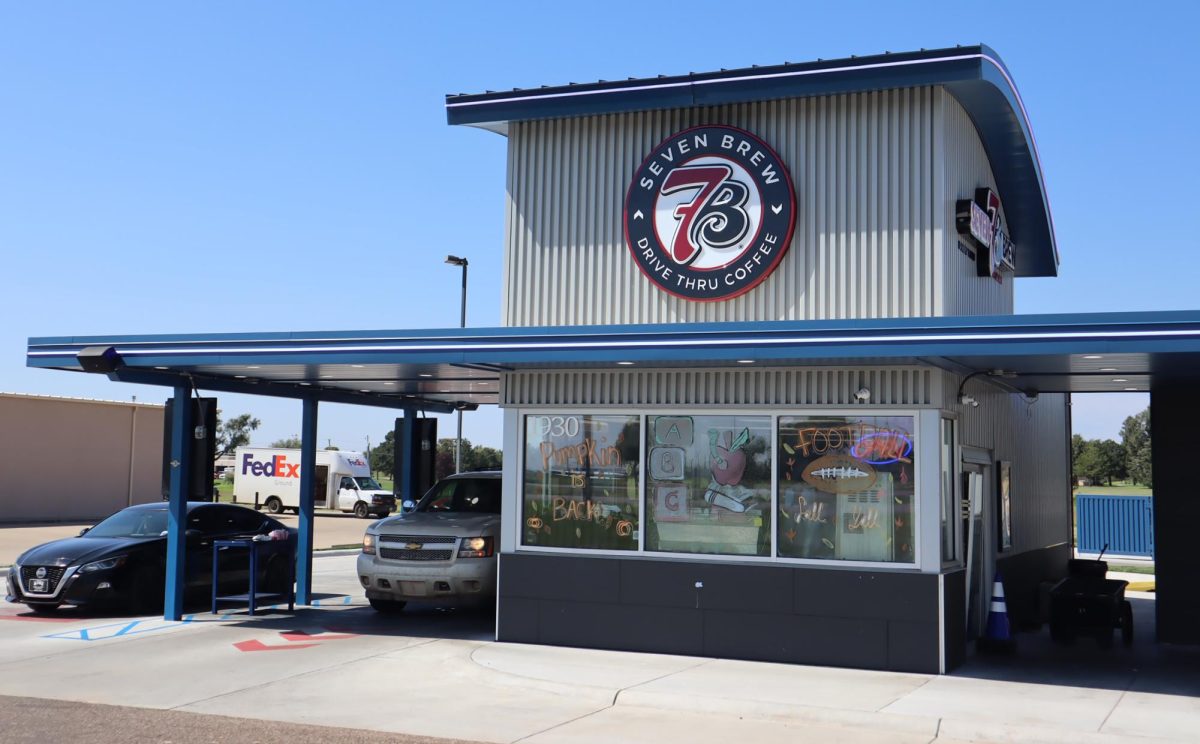
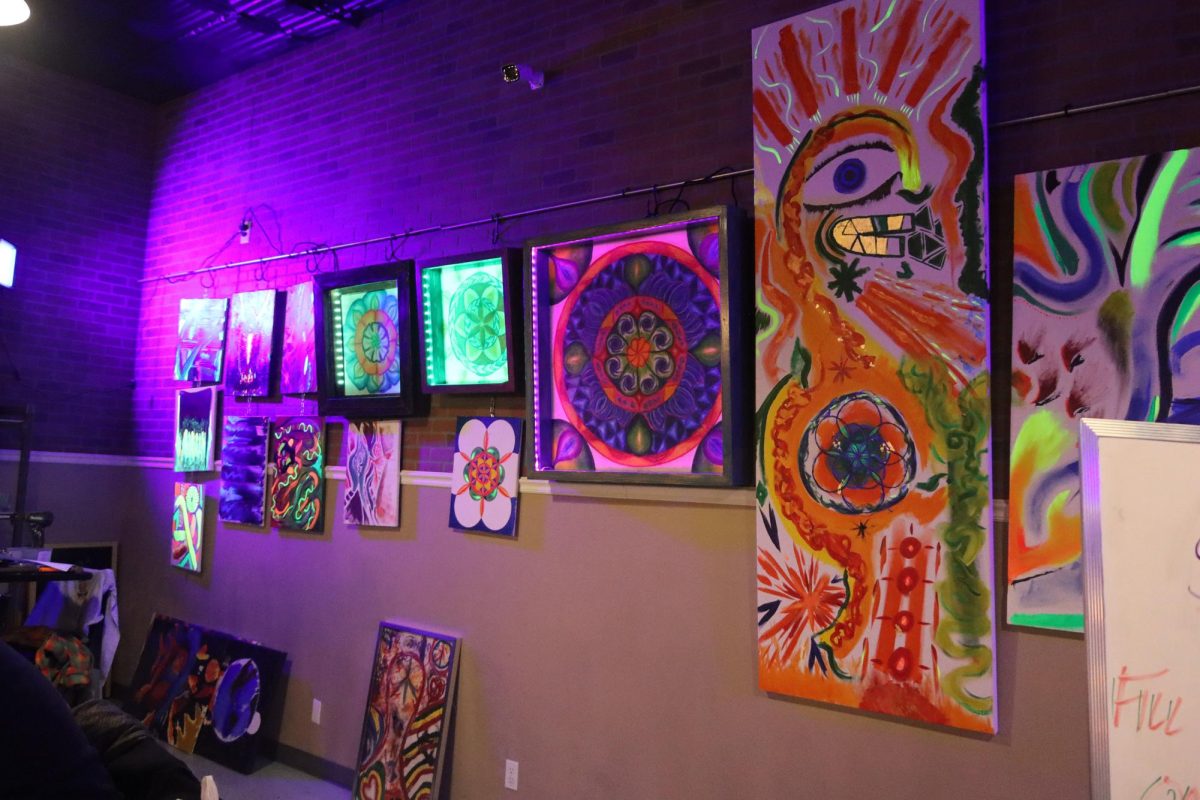

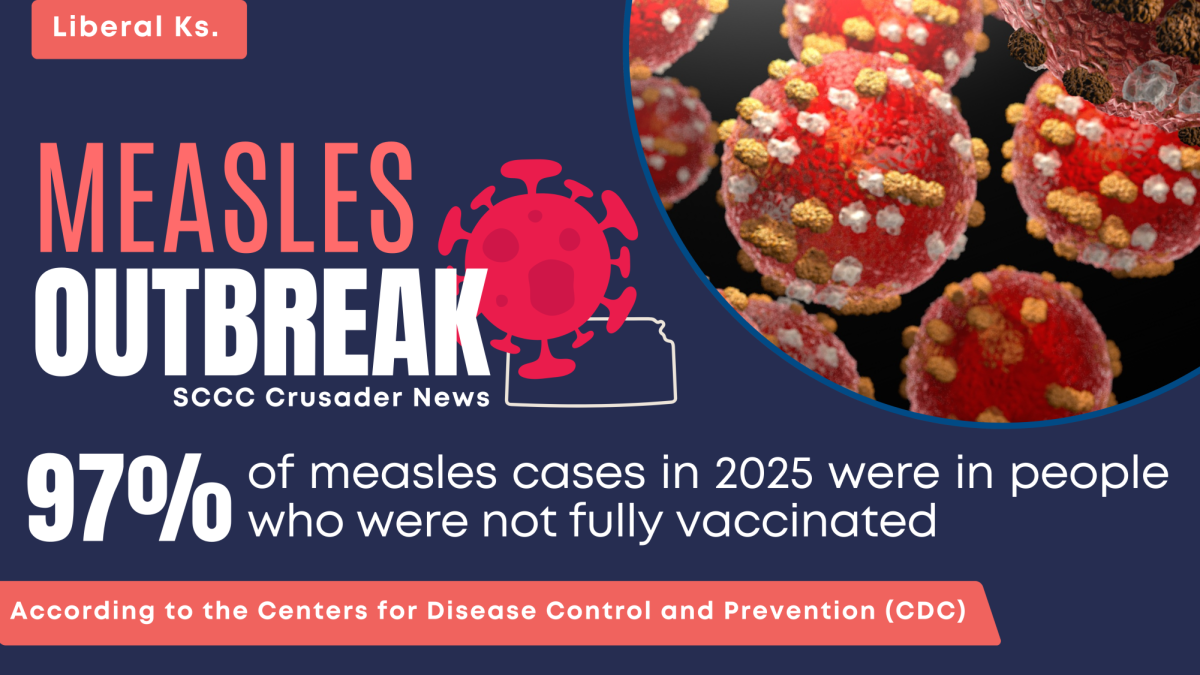








![The sophomores were recognized on the field instead of walking across the stage during their doubleheader. They received their diplomas and a picture of themselves playing during their career at Seward. [Pictured left to right are Dylan Day, Reed Thomas, Jase Schneider, Mason Martinez, Gannon Hardin, Brody Boisvert, and Zach Walker]](https://crusadernews.com/wp-content/uploads/2022/05/WEBDSC_0275-900x454.jpg)





